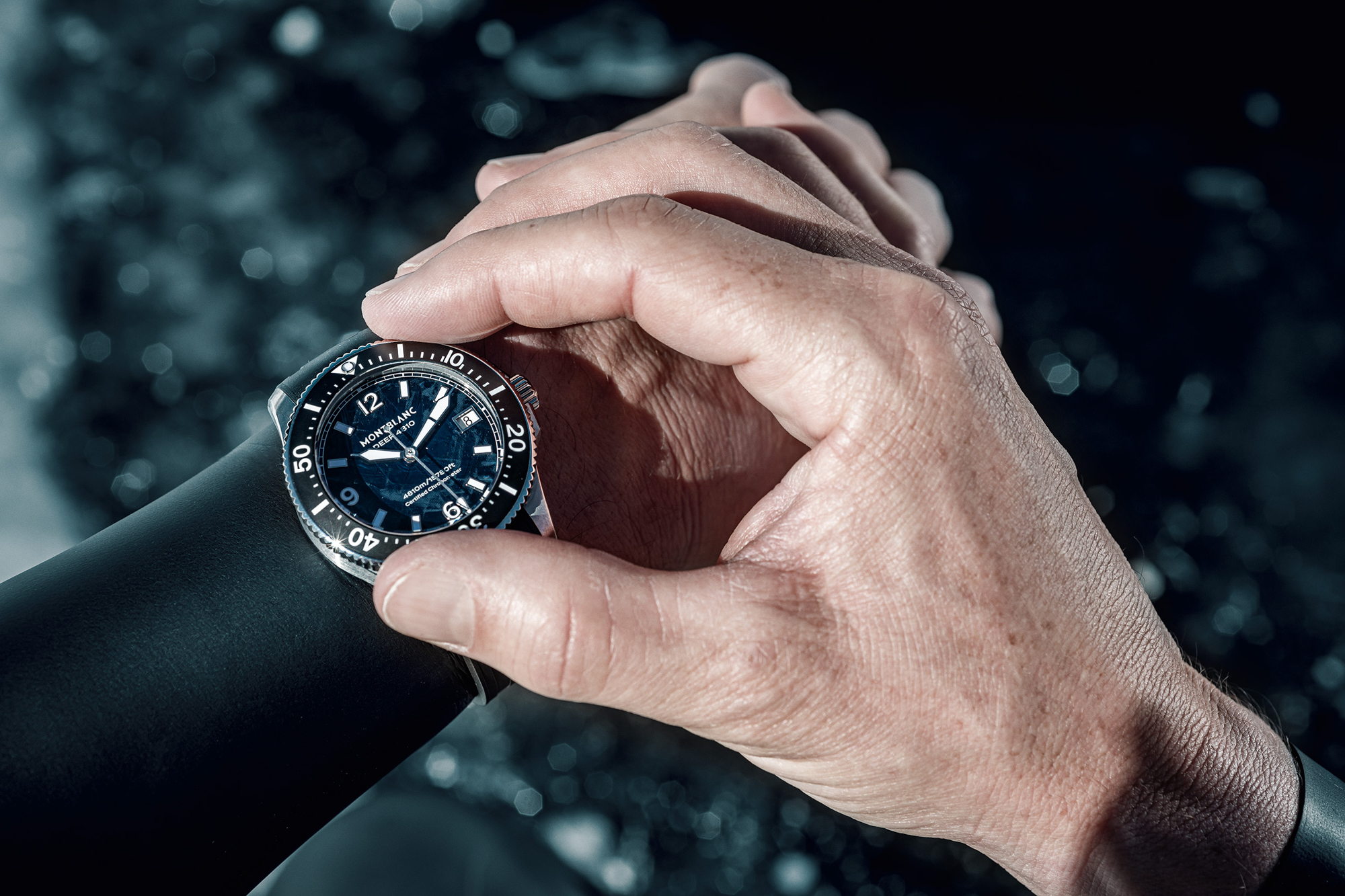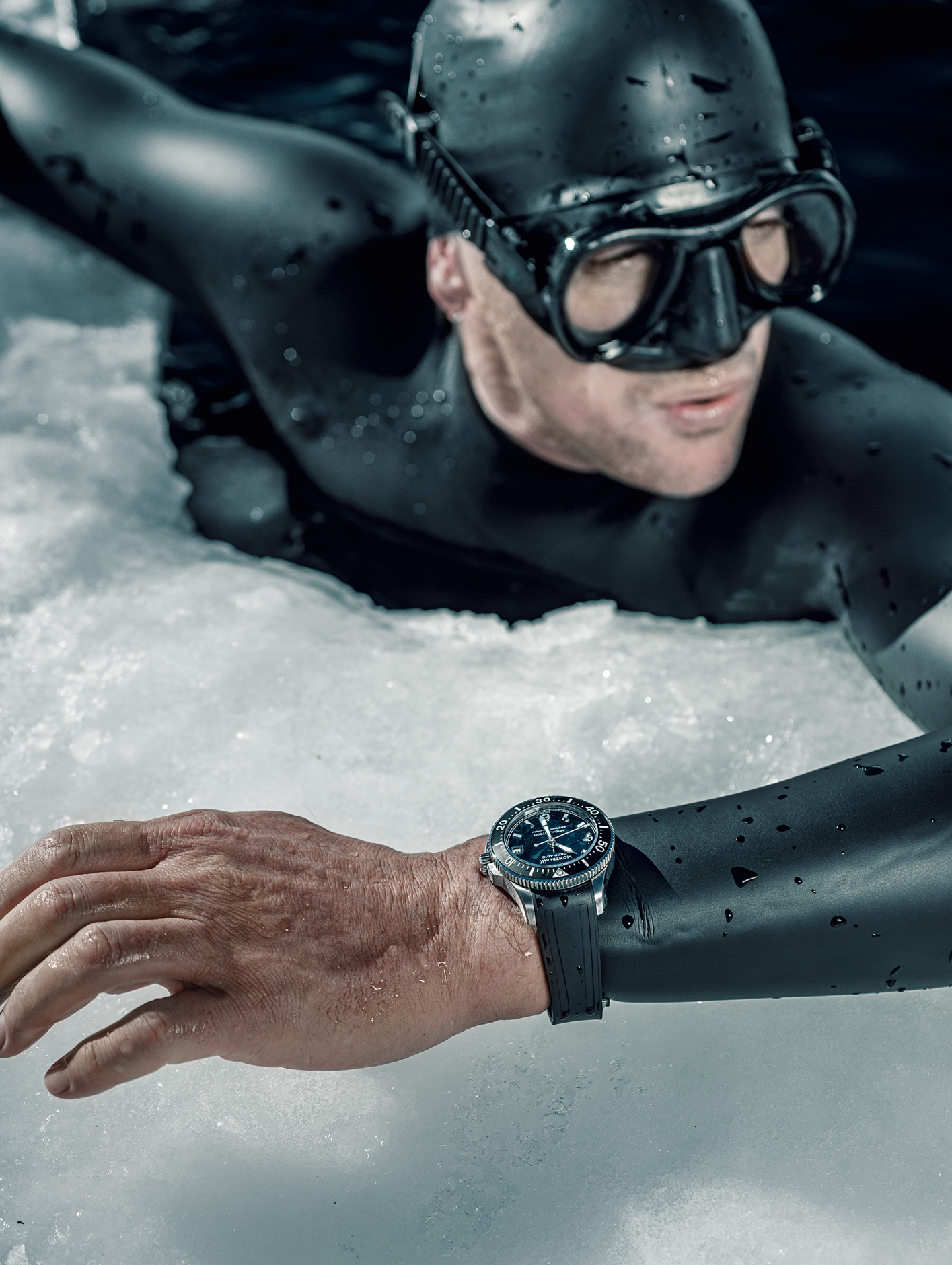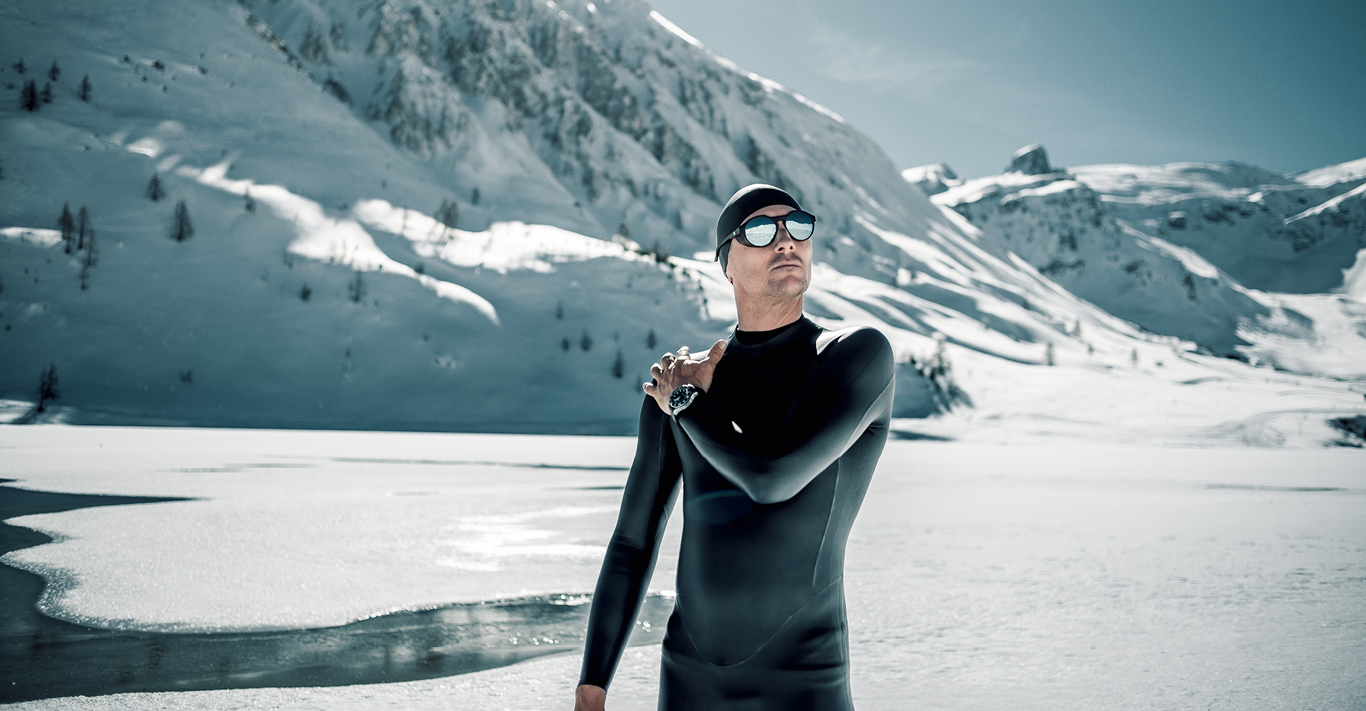WORDS
Nicholas Ross
Having broken 18 world records and been officially named the world’s greatest all-around freediver in 2010 and 2011, William Trubridge has spent a lifetime exploring human aquatic potential. Here, he tells us about his career and his experience putting Montblanc’s new Iced Sea 0 Oxygen Deep 4810 watch to the test.
Where did your passion for freediving originate?
I first became passionate about freediving as a sport when I was 22, but it was instilled in me a long time before that. I was born in Northumberland, just next to Hadrian’s Wall, and my family sold our house there to buy a boat to sail from Europe across the Atlantic, then through the Caribbean, across the Pacific, to New Zealand.
We left when I was two and arrived when I was five. But we lived on the boat until I was 10. Throughout that time, the sea for me was everything: it was a highway, a supermarket, a school, a playground. So, it was just a natural place for me to be. I didn’t find out there was a sport where you could compete for depth until I was in my early twenties.
You’ve broken 18 freediving world records and remain a world record holder in the Constant Weight Without Fins (CNF) discipline. In many cases, you’ve broken your own world records. Throughout your career, what has motivated you to keep pushing your limits?
The world record titles and medals are obviously gratifying, but it’s less about that and more about a process of exploration: exploring the underwater world, of course, but also exploring what we are capable of down there, human aquatic potential. That’s why freediving is such a good match with Montblanc. The brand is associated with the exploration of human limits at the same time as that of the environment. Now, with the Deep 4810, they’re expanding their philosophy of exploration downwards into the underwater world.
You’ve previously spoken about engaging the subconscious part of the mind approaching and during stressful situations like your freediving feats. What does this entail?
I always liken the subconscious mind to a mountain lake where you have this thin layer on the surface, what you can see on top. Here, there are rational thoughts, which happen at the speed at which we can say words. Then underneath you have this huge volume of processes happening subconsciously, where there is so much more, though we’re not aware of it. The processing power of the subconscious, I think, has been measured at more than 10,000 times that of the conscious mind. It’s also more accurate because it has access to more data.
So, using the subconscious is having confidence in surrendering to its power. We do that by programming it with a script of what we want to achieve, whether that’s a free dive or a state of mind or a state of being, and visualising that. You’re programming the subconscious so you can step out of the way, get your thinking mind out of the way, and a free dive can be entirely operated on that subconscious autopilot.
Have any of the physical or mental skills you’ve picked up from freediving helped you in other parts of life?
Absolutely – we could talk for an hour about this because it’s an area I’m moving into a lot recently. I’ve developed a system called the Mental Immune System. It takes the techniques we use to deal with the pressure of a free-dive world-record attempt and makes them available to anyone struggling with pressure in their lives, whether it’s stress or anxiety or anything else.
As you know, there’s been an epidemic of mental health problems. So, we need these kinds of techniques to counter those problems without replacing them with some other dependency, whether a substance or something else. The power of this mental system is that you programme those techniques into the subconscious mind. By doing so it allows them to operate in the background so that in those intense and high-pressure situations – whether it’s an argument you’re having with a spouse or a complicated boardroom meeting – you can still operate, while in the background you have this immune system that is taking care of the pressure, and that is ensuring you are unperturbed and unruffled by it. Just as your physical immune system counters pathogens without you having to tell it to do so, this mental immune system deals with the stresses and anxieties in the background, allowing you to perform at your optimal.

How important is timing in freediving disciplines like CNF and free immersion?
Timing is everything. Even if you’re not doing anything and just staying still, we have a limited time we can hold our breath. When you’re going for a depth record, that’s compounded by the fact that you’re using oxygen more in your muscles to swim down and then back up. You have to be completely efficient in your movement and with your use of time to be able to go to a maximum depth and then return to the surface. Every second counts, every molecule of oxygen counts, every thought or thing that can use that oxygen counts: it’s all about precision and economy.
What does it mean to you to have become a Montblanc Mark Maker?
It’s an immense privilege because of the association with this brand and the explorers and Mark Makers who have come before me. I feel the identity of Montblanc is always being grounded on something very real. There’s an explanation behind everything about the brand and its identity. For me to be associated with its level of craftsmanship and exploration is an immense honour.

You recently wore the Montblanc Iced Sea 0 Oxygen Deep 4810 watch in 0°C glacial waters during a photoshoot in the French Alps. How did you and the watch fare?
Really good. I probably fared less well than the watch… I’m used to diving in warmer, tropical climes, but it was still an amazing experience for me, which I’d love to do again. The watch is impervious to anything you can throw at it. In that environment, we had to wait for 20 minutes for the cameraman’s camera to un-fog because when you go from air temperature to underwater where it’s freezing, all the moisture inside condenses and it fogs up. But the watch didn’t do that, of course, because it doesn’t have any oxygen inside. So, all these things make it so rugged and impervious to the elements, while at the same time having this really crisp but simple elegance.
What do you like most about the Montblanc Iced Sea 0 Oxygen Deep 4810?
It’s built a little thicker to be able to withstand almost 5,000 metres under the water, yet you don’t feel it on your wrist, which is one of the other things I love about it. When I’m swimming underwater, I swim with no fins, just my hands and feet. If I have something heavy on my wrist during that movement, I can feel it a lot. But with this, it’s so light I almost don’t notice it’s there. It could follow me anywhere.



